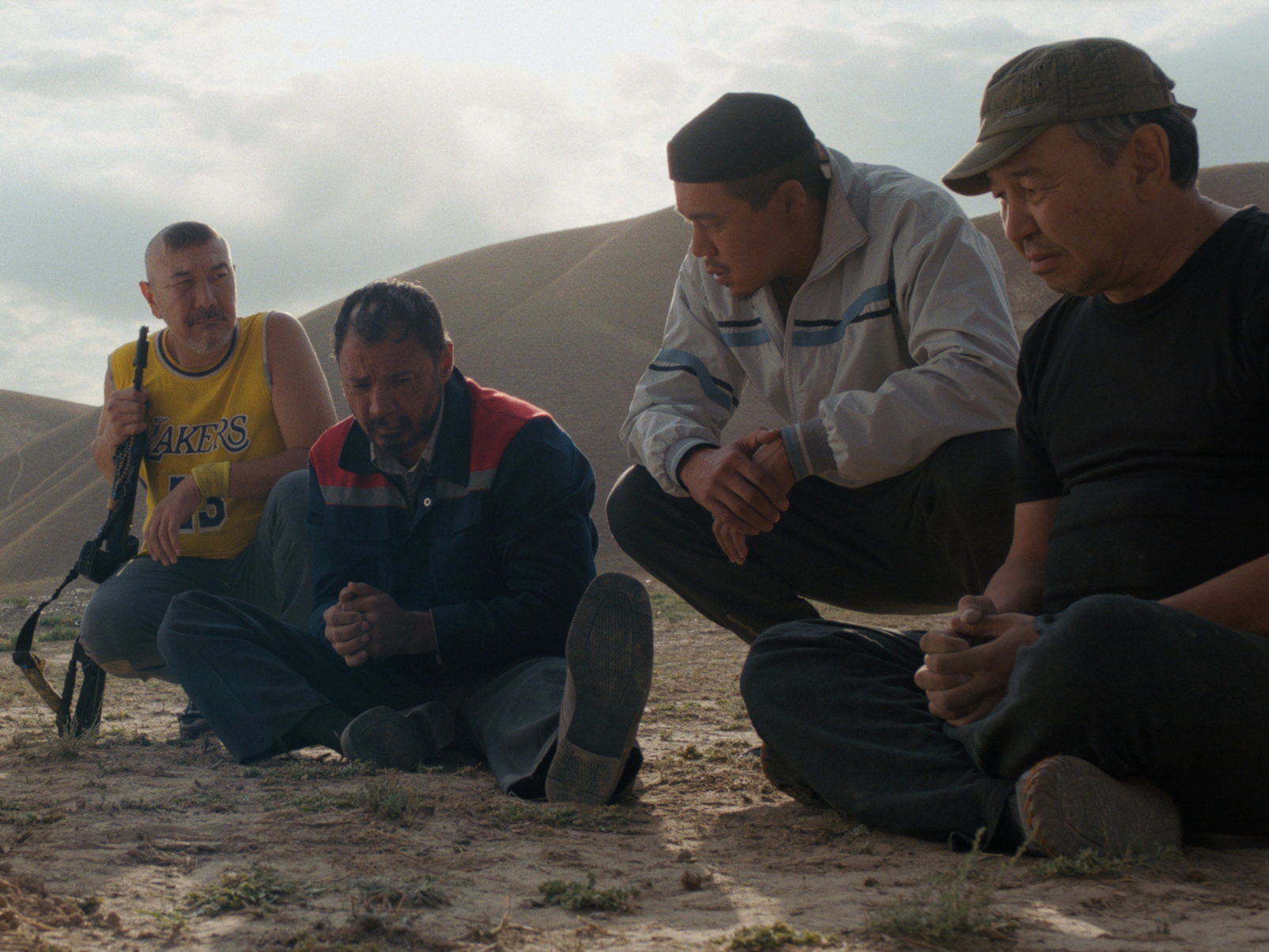
- Golden Globe Awards
Goliath (Kazakhstan)
The director and screenwriter of the highly acclaimed Kazakh drama Goliath, Adilkhan Yerzhanov, has been a two-time participant in the Cannes Film Festival’s Official Program (The Owners, 2014, Official Selection, and The Gentle Indifference of the World, 2018, Un Certain Regard). He won an Asia Pacific Screen award in 2019 for Achievement in Directing for A Dark, Dark Man. Goliath is Yerzhanov’s 15th feature in a career spanning 15 years.
The Kazakh village of Karatas has long been subjugated by criminal boss Poshaev (Daniyar Alshinov) who provides housing and jobs for the locals but will ruthlessly execute anyone who dares to oppose him. This is the lesson poverty-stricken Arzu (Berik Aitzhanov) learns first-hand when his ex-wife Karina, having informed the police about the crimes that are taking place there, is murdered. Arzu, a cripple and now forced to raise his daughter alone, soon becomes Poshaev’s right-hand man. But where do Arzu’s real loyalties lie… with his boss or with the idea of justice?
Yerzhanov has experimented with many different genres throughout the years, and although many of his films are surprisingly different, he believes this helps to strengthen and develop his screenwriting style. In Yerzhanov’s films, everything is present and placed as it should rightly be, and this neutral attitude allows the audience to look at their own reactions and that of others in a different light. The director deliberately tries not to impose his opinion on viewers.
The village in Goliath is depicted as a microcosm of the world which is dominated by force and power. Yerzhanov has always deemed it interesting to tell a fairy tale about power, and he worries that the era of dictators is intensifying. However, he firmly believes that the Davids of this world will flourish in the face of a free society and the Goliaths will disappear in the face of totalitarian regimes.
The film questions the underlying system within which Goliath and the underdog are represented. Is there a chance for the underdog to actually change the system, or, having implemented his plan and quenched his thirst for revenge, will he, once again, sink back into the system’s black hole that constantly grinds him down? Will the remnants or glimpses of conscience and boldness get stuck in a swamp of apathy, fear, and hopelessness, or does the soul at least have a chance to recover from the consequences, regardless of external conditions?
Yerzhanov describes his film as being about revenge. It is a western set in the Kazakh steppe where the characters need to decide whether to take revenge or forgive and surrender. Goliath certainly manages to stir the audience’s emotions and raises a number of questions that need to be answered, at least for ourselves.

